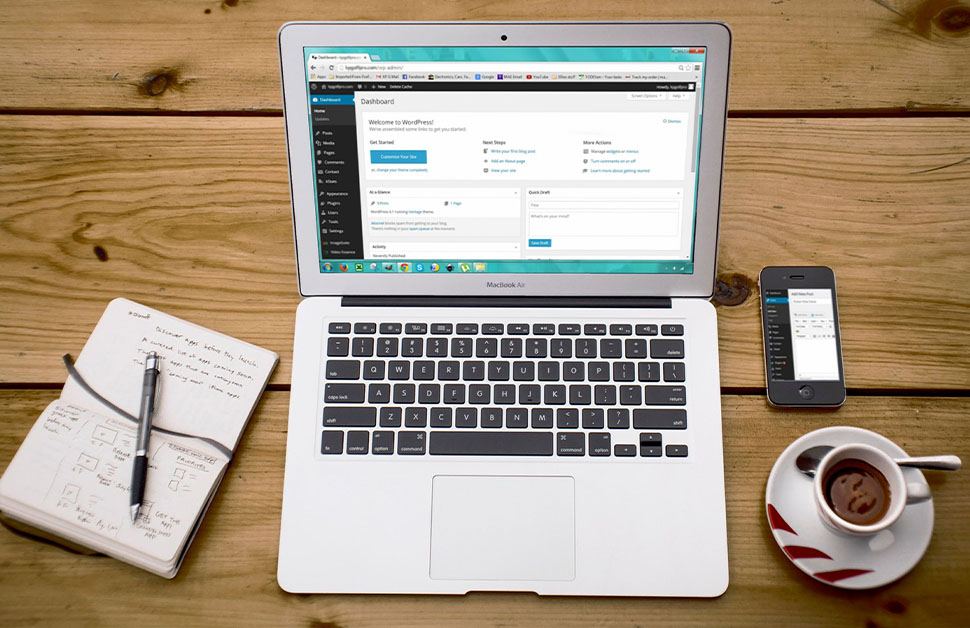Google processes an average of 5.6 billion searches daily or 63,000 searches per second. With this much digital noise, how do you get your brand noticed and ahead of competitors? One tried-and-tested method is pay-per-click (PPC) advertising.
PPC is an effective way to bring quick traffic from search engines. Coupled with search engine optimization (SEO), it can help your business attract quality leads, boost sales, and rank high on major search engines.
Read on to learn the basics of pay-per-click advertising, what you need to get started, and where to find the best PPC services for small businesses in Orlando, FL.
First things first – what is pay-per-click?
PPC is a form of paid advertising that allows businesses to display their offerings on the search engine results page (SERP) each time a user types in specific keywords. It’s an effective way to promote a particular service, product, event, special offer, or downloadable material at the right time to the right audience.
PPC ads could be placed at the top and bottom of SERPs, on web pages with relevant content, applications, and social media platforms. Best of all, you will only get charged a fee every time someone clicks on the ad.
The 5 Basic Components of PPC Marketing
It sounds simple enough, but without the right elements – you could be wasting precious time and ad spend. To kick off your PPC campaign, here are five key elements that could make or break your strategy:
1. Keyword Research

Each ad within an ad group targets specific keywords or phrases. This instructs search engines like Google on which queries you’d want your ad to be placed alongside in SERPs.
When selecting keywords, it’s important to consider the many ways that people could search for a particular product or service. For instance, one user could search for “Los Angeles pizza joints” while another could search for “pizza places in LA”. Including different keyword variations in your strategy increases the chances of having your ads displayed for various search terms.
That being said, be sure to implement the following keywords in your strategy:
- Generic Keywords – also known as short-tail keywords, these are terms that broadly describe your product or service (e.g., tennis shoes, marketing, car). They have a wider reach and target users without a specific brand in mind.
- Branded Keywords – include the name of the brand, business, or company (e.g., Nike, Puma, or Adidas).
- Long-Tail Keywords – consist of more than 3 to 4 words (e.g., Adidas running shoes for a marathon) and have higher conversion rates than other keyword types.
- Transactional Keywords – search terms that show a purchasing intent. They typically contain words like cheap, buy, purchase, and best (e.g., best running shoes).
- Locational Keywords – incorporate geotags and are useful for companies targeting a specific location (e.g., Italian restaurants in Los Angeles, CA, or Italian restaurants near me).
2. Bids
PPC ads operate on a bidding system. Businesses auction off specific keywords to secure ad space for terms relevant to their offerings. To start, a maximum bid which is the most you’re willing to pay per click on an ad will be determined.
You can choose between “manual,” in which you set the maximum bid, and “enhanced,” in which search engines adjust bids according to your goals. Essentially, the highest bidder wins the ad space.
3. Targeted Content
You’ve secured the ad space, now what? It’s time to create targeted copy that makes users want to click on your ad. Remember, you only get a few words to convince readers, so make it brief and snappy. Consider these tips when writing PPC copy:
- Target user pain points or mirror their objectives
- Include numbers or statistics in headlines
- Incorporate emotional triggers
- Highlight the benefits of your product or service
- Create keyword-rich display URLs
- Include a call to action
4. Landing Pages

Once a user successfully clicks on your ad, the next goal is to get them to stay on the page until they make a purchase. The landing page is a crucial part of this strategy – it’s where users land whenever they click on your ad.
Whether it’s the home page or a dedicated page, follow these best practices when optimizing your landing page:
- Write brief and engaging content
- Ensure pages are unique and relevant to each campaign
- Align the headline, product/service, and CTA
- Use images and video when appropriate
- Be creative design but avoid too much clutter
- Keep form fields at a minimum
- A/B test different page elements
- Create a compelling CTA
5. Website Analysis
It’s imperative to regularly measure the effectiveness of every campaign. Performance tracking helps identify effective strategies and those that need improving. You can tweak your campaign accordingly to get better results moving forward.
Some tools that you can use to track ad performance include:
- Google Keyword Planner
- SEMrush
- Google Analytics
- PPC Entourage
- SpyFu
- Google Ads Editor
How Does PPC Advertising Work on Google?
PPC advertising varies from platform to platform. However, to give you an overview of the process, we’ll use Google Ads, the most-used PPC advertising platform, as an example.
When advertisers create an ad, they assign a list of keywords to target with that ad, then place bids on each keyword. So if you bid on the keyword “pizza parlor,” you are telling Google you want the ad to appear for searches related to pizza restaurants.
To determine which ads appear for a given search, Google uses a series of formulas and an auction-style method. If your ad is selected for the auction, you will receive a Quality Score from one to ten based on the predicted click-through rate, ad relevancy, and landing page quality.
Your Ad Rank will then be calculated by dividing the Quality Score by the maximum bid, which is the most you’re willing to pay for a click on that ad. The ads that appear are the ones with the highest Ad Rank ratings.
This technique enables successful advertisers to reach prospective clients at a price that meets their budget.
Get Started with PPC
Starting a PPC campaign can be intimidating, but with the right tools and PPC services for small businesses in Orlando, FL, you can harness the power of paid advertising for your business. Boost your traffic and conversions by partnering with Tonic Enterprises. We create high-converting PPC campaigns that get your business front and center to potential customers.
Get in touch today to book a free phone consultation with one of our digital marketing experts.


